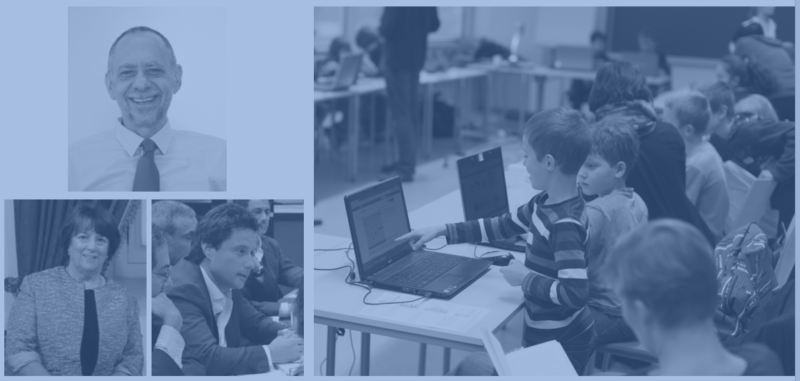Protecting Latin America’s Poor During Economic Crises
History tells us that economic crises cause large increases in poverty. The most recent economic crisis will cause Latin America’s GDP to contract around 2 percent in 2009.
This post is also available in: Español
On August 3, 2020, the Education Program hosted a webinar to reflect on the processes that lead education reform from theory into practice. The event focused on how to pass and implement substantive and long-term reforms that raise the quality of education in the midst of a diverse and shifting political landscape.
This virtual panel featured Gabriel Sánchez Zinny, former minister of education of Buenos Aires’ province and author of Educación: lo que no nos cuentan, and Adriana Delpiano, former Chilean minister of education, in conversation with Ariel Fiszbein, director of the Education Program at the Inter-American Dialogue, on their experience implementing education reform. This event had over 100 participants join live.
In the world of education policy experts, discussions tend to focus on the contents of reforms, without emphasizing the processes that make it possible for them to become a reality. In the education sector, the constant tensions between theory and practice generate complex challenges that require comprehensive, effective, and viable solutions.
The panelists agreed on the importance of updated information to make decisions that respond to the reality of the communities in question. As former minister of one of Argentina’s most populous provinces, with approximately 18,000 schools and half of the national enrollment, Sánchez Zinny stressed the importance of basing decisions about quality reforms on evidence. Adriana Delpiano, who oversaw a national reform, pointed out the links between social inequality and the gap in educational quality, prioritizing the strengthening of information systems to distribute resources more effectively. Delpiano spoke of the value of evidence in determining best practices, diagnosing mistakes, and ensuring the continuity of education reforms beyond partisanship. Sánchez Zinny not only agreed, but also added the enormous administrative burden that an outdated information system represents for teachers and principals. Standardizing dispersed databases makes it possible to cross-check key information with learning outcomes to allocate resources, invest in infrastructure, train teachers, and grant medical licenses and pensions.
Both experts agreed that in addition to accurate information, government collaboration is required to ensure that education reforms are not only planned, but also implemented. For Delpiano, this reality was particularly salient, since the Chilean government not only advanced educational reform through a series of laws, but also, in collaboration with the Ministry of Finance, benefited from a tax reform that allowed for a significant increase in the resources available for education.
During the webinar, questions from the audience focused on how to navigate the political implications of education reforms, since reluctant actors, such as a political class opposed to legal reform or unions unwilling to make certain changes, often hinder approval and implementation processes.
Both former ministers established that a sense of urgency is generally lacking in the educational debate, which makes it imperative to encourage and sustain social demand from constituents. For Sánchez Zinny, the key lies in the incorporation of guild and productive sectors, parents, entrepreneurs, and managers in networks of constant dialogue. According to Delpiano, even though dialogue and cooperation with the union sector is crucial to create substantive reforms, ultimately, the employment status of teachers should not overshadow the quality of education in discussions. Sánchez Zinny spoke on how to maintain open and transparent communication channels with teachers, administrators, unions, entrepreneurs, government institutions, parents, and civil society organizations, and how to cultivate the social demand on which political will ultimately depends. Empowering citizens to become key actors that demand better education can only be achieved through inclusive dialogue among different groups, not only political representatives. Promoting ambitious educational reforms without listening to the real needs of communities becomes a rhetorical exercise. "We must not get tired of talking," concluded the author of Educación: lo que no nos cuentan.
To conclude, the former ministers reflected upon how to maintain a constructive relationship with the press and other government sectors, balancing political negotiations with the need for successful public policies. Sánchez Zinny warned of the distraction associated with media battles, which can distance both the electorate and legislators from the substance of the education reforms. Both Sánchez Zinny and Delpiano shared how complex it can be to navigate a highly politicized environment and express objectives clearly to journalists in search of headlines. By focusing on objectives and outcomes that can be qualified and quantified, education reform gains independence and continuity, key elements to avoid politicization.
History tells us that economic crises cause large increases in poverty. The most recent economic crisis will cause Latin America’s GDP to contract around 2 percent in 2009.
The goal of education is to promote learning. Sitting in classrooms is a weak proxy for knowing how to read, do math, and apply science. Latin America needs to worry less about schooling and more about learning.
Argentine President Cristina Fernández has increased her appeals to nationalist sentiment to build domestic political support.
 Main Photo: Rainer Stropek / Flickr / CC 2.0 / Adaptation: Blue Wash
Main Photo: Rainer Stropek / Flickr / CC 2.0 / Adaptation: Blue Wash